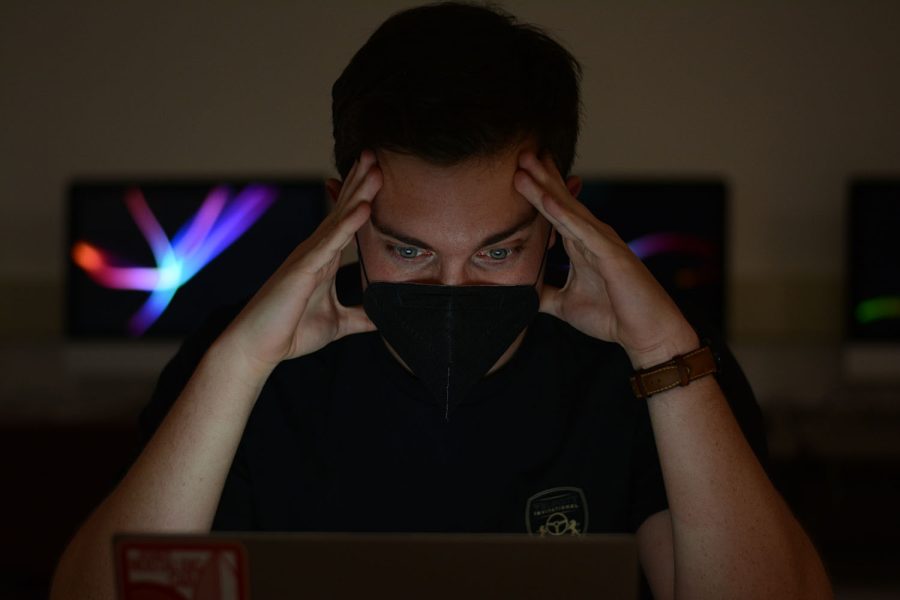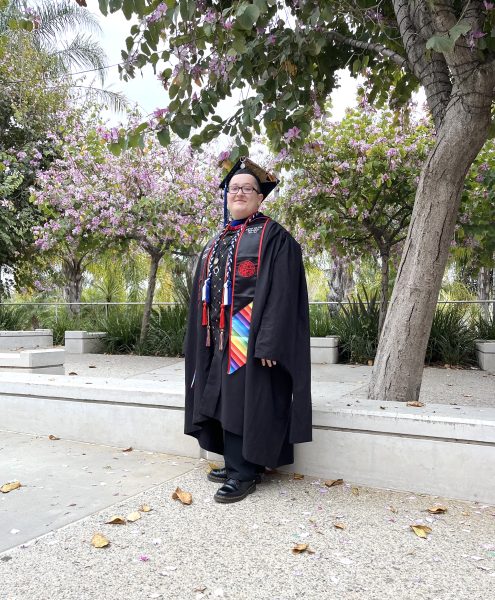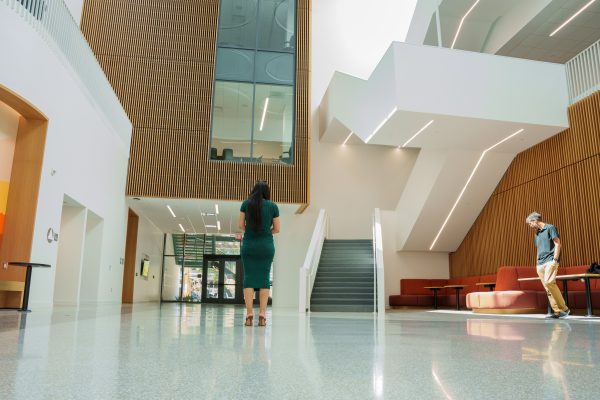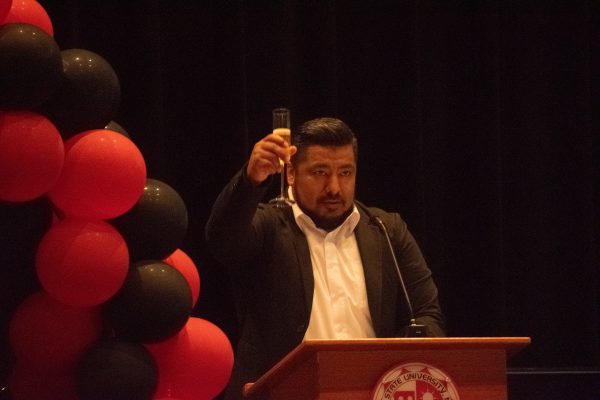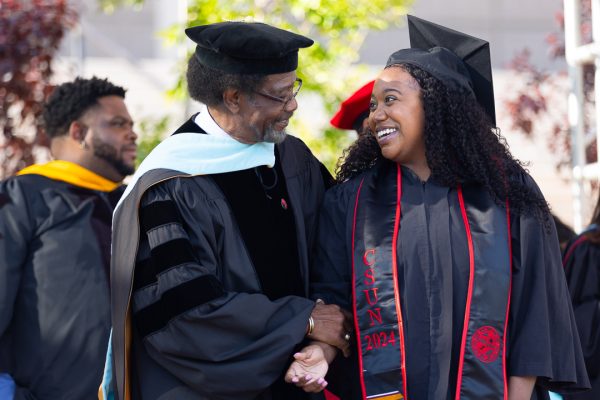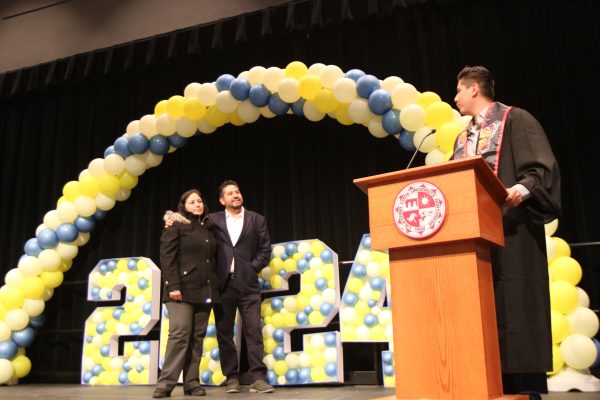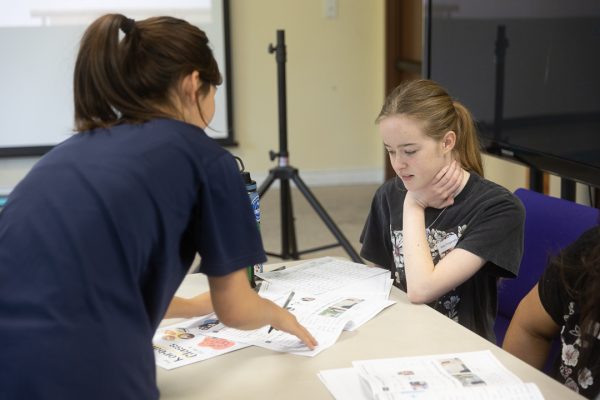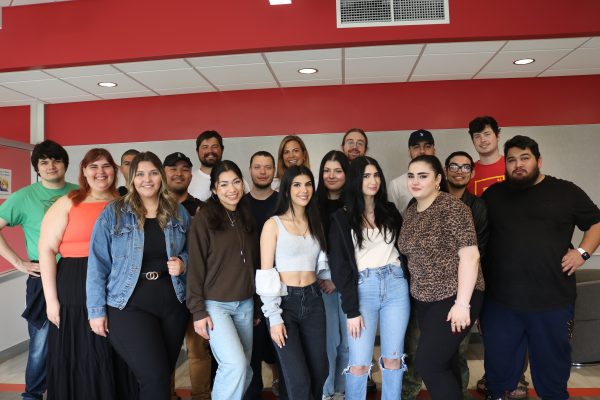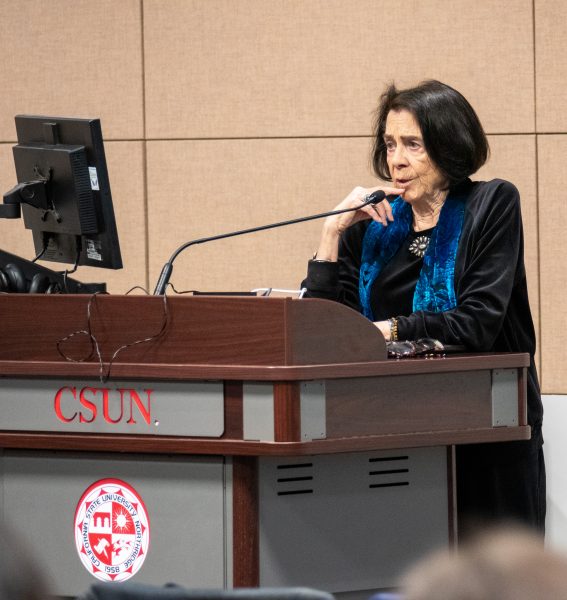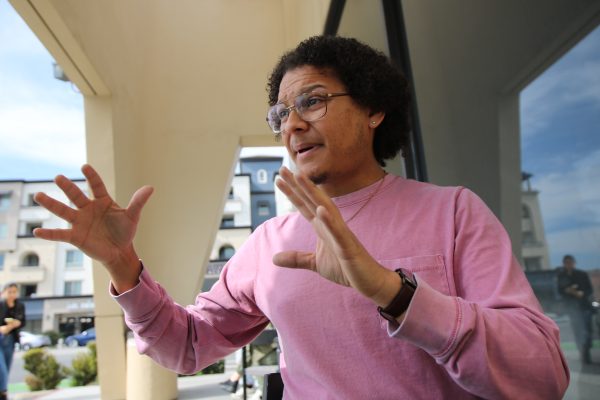CSUN opens up avenues of approach for pandemic PTSD
Photo Illustration: CSUN senior Chris Constantine worries about completing all his homework on Thursday, Feb. 10, 2022, in Manzanita Hall 211 in Northridge, Calif.
February 17, 2022
CSUN is planning to launch a massive expansion of counseling services on multiple fronts to provide support for students and faculty who suffer from post-pandemic stress.
Spearheading the Campus Care Recovery Plan is Shari Tarver-Behring, the dean of CSUN’s Michael D. Eisner College of Education.
Tarver-Behring explained that the program will have several ways of providing support. This would include comprehensive education, professional development, clinical services, websites, workshops and more.
Tarver-Behring explained that there are two main goals for the CCRP.
“How do people identify the impact of the pandemic on themselves, as it varies from person to person. Next identifying services and programs for the spring semester to recover,” said Tarver-Behring.
These goals will be achieved through the CCRP team doing extensive research. They will use data from past student surveys and conduct new surveys about student mental health.
A major component of the plan is their website “CSUN Revitalized,” which will offer students and staff access to information and counseling services, workshops, and dates for keynote speakers. Tarver-Behring considers the website to be the “heart and soul” of the CCRP.
CSUN Revitalized was scheduled to launch on Feb. 14, but has been delayed due to technical difficulties with no confirmed launch date.
All faculty, including professors and counselors, will be equipped with a virtual “Faculty Toolkit.” This will include strategies for how to support and understand students, both in class and during counseling sessions.
CSUN’s human resources’ Employee Assistance Program will also be providing therapy and counseling services to staff members in the program.
According to Tarver-Behring, the CCRP is needed to deal with the country’s collective grief, as 20% of Americans personally know someone who has died during the pandemic. In diverse communities such as CSUN, that number is even higher.
She went on to explain that not everyone is equipped to deal with the intense trauma that COVID-19 has dealt.
Sunil Obediah, a staff counselor who works with Tarver-Behring, explained that a common symptom he sees in students is anticipatory anxiety.
This is a condition where someone has excessive or debilitating worries about negative outcomes for the future.
Obediah anticipates that there will be new and unforeseen challenges as the pandemic continues, but he feels confident in providing the services needed.
“I am confident that the combined efforts of the Campus Care Recovery Program and University Counseling Service are strongly situated to support our students as they cope with the socio-emotional impact of the pandemic,” said Obediah.
